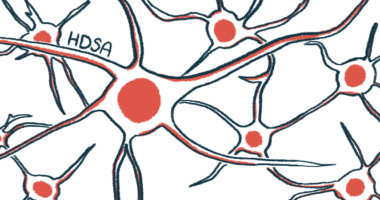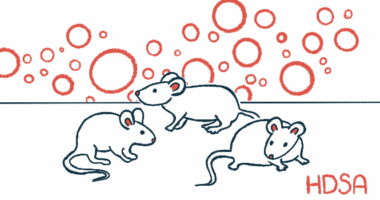10 Reasons to Keep Going to Work When HD Is on the Horizon

One of the more tragic aspects of Huntington’s disease (HD) is how the symptoms can begin to take control of a person in their prime adult years. There’s no cure or effective treatment available to us yet, so it’s like those of us who are gene positive for HD have a time bomb ticking away in our genetic code. I know I often feel that way.
My CAG score is 42 repeats. The data show that the average age of onset for someone with my CAG number is somewhere between 30 and 50 years of age. I know that our CAG score is not the only clue to when symptoms may become apparent. There are factors out there that we don’t fully understand that may contribute to an earlier or later age of symptom onset.
I’m 44 years old.
Even though I fully understand it could still be years before my Huntington’s disease journey takes a turn for the worse, the time bomb in my DNA is beginning to feel more like a cannon fuse than a candlewick.
My job
Now that I’m well into my 40s (ugh), I’m noticing a few things about myself :
- My beard is almost 50 percent gray.
- I’m now wearing bifocals (nowadays they’re called progressive lenses so we don’t feel too bad about ourselves).
- There are days I feel I’m wasting valuable time by going in to work every day.
I’m OK with points 1 and 2. I should explain more about number 3, though. I often feel like my future is already written and there’s nothing I can do to change it. It looks something like this:
- I keep going to work every day.
- My HD symptoms begin to progress.
- Eventually, I must stop working because of HD.
- HD takes away the real me and replaces it with something I don’t want to be, while my family watches.
Where’s my happy retirement, when I can focus on my family and enjoy a hobby or two? Why am I being ripped off?
I understand that no one, whether they have HD or not, is guaranteed a long, happy, healthy retirement frolicking in the green, grassy hills with their offspring. I get it. Everyone’s journey could be cut short at any time. I’m just sharing what’s going on in my head as the days move past.
10 factors that keep me going to work
Whenever I’m feeling particularly sorry for myself, I run through the following list of reasons I keep getting out of bed in the morning and lacing up my work shoes:
- My kids are at risk of inheriting this disease from me. They need to look to me as an example of how to remain positive while facing it.
- Keeping my brain active by solving problems is beneficial to its health. I think.
- My family and my wife would be heartbroken to see me give up. I can’t do that to them.
- Let’s face it, the bills still need to be paid. Disability benefits would not equal my salary.
- What would I do? There’s only so much time I could spend surfing Medium and Twitter.
- I believe that researchers are close to a more effective treatment, so it’s possible I could live a long life. I can’t throw in the towel when we are so close!
- Work is a job, but it also comes with a social network of colleagues and friends. Not having that would be a loss.
- It provides me with a routine that, for some reason, helps me manage my anxiety.
- There’s no reason for me to sit around all day thinking about my worries and feeling sorry for myself. Work takes my mind off those things.
- It gives me a reason to shave. My wife likes it when I shave. Especially with the 50 percent gray hair.
What keeps you going?
***
Note: Huntington’s Disease News is strictly a news and information website about the disease. It does not provide medical advice, diagnosis, or treatment. This content is not intended to be a substitute for professional medical advice, diagnosis, or treatment. Always seek the advice of your physician or other qualified health provider with any questions you may have regarding a medical condition. Never disregard professional medical advice or delay in seeking it because of something you have read on this website. The opinions expressed in this column are not those of Huntington’s Disease News, or its parent company, Bionews Services, and are intended to spark discussion about issues pertaining to Huntington’s disease.







Leave a comment
Fill in the required fields to post. Your email address will not be published.